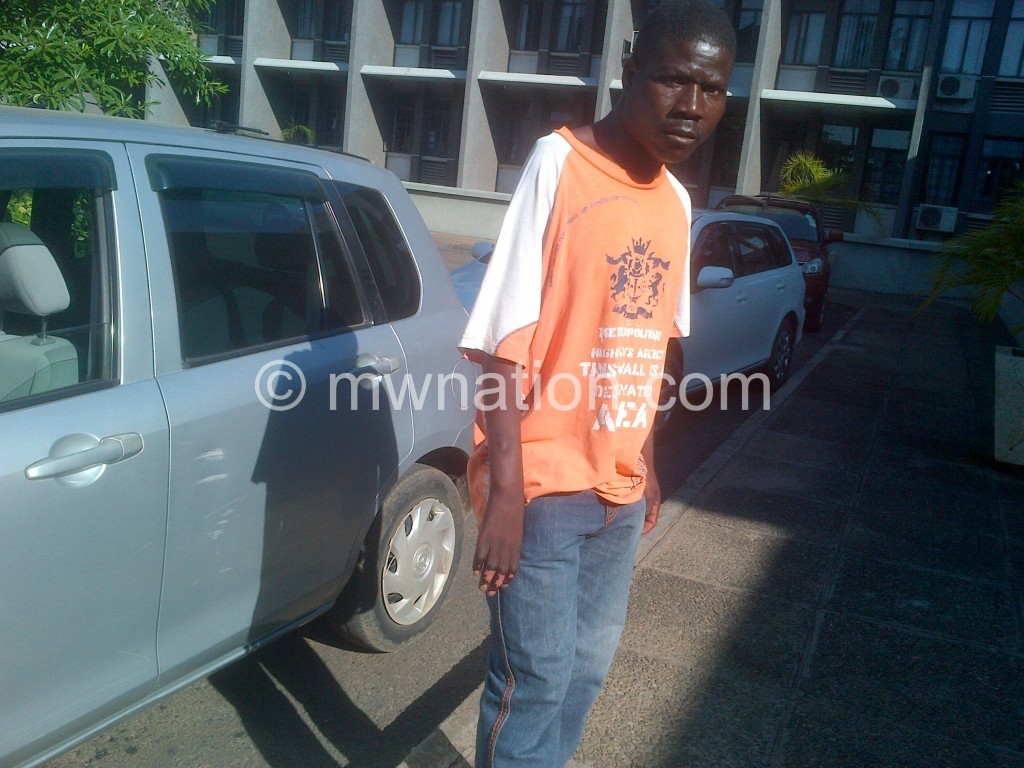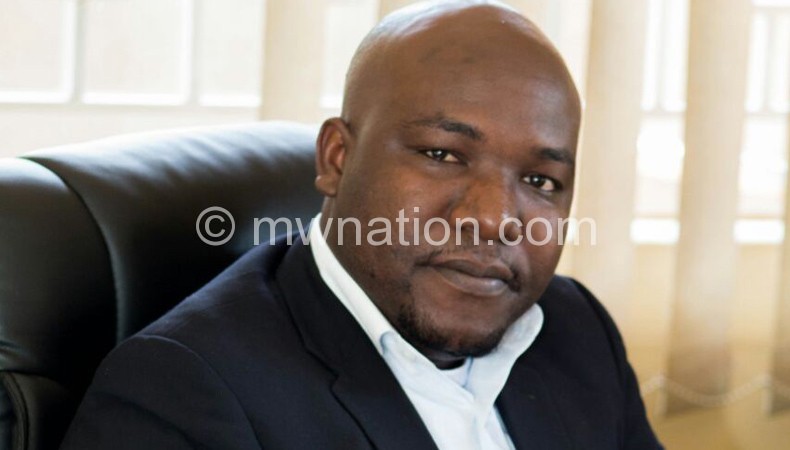Malawi’s winding road to justice for the poor
The Legal Aid Bureau (LAB) is struggling to meet the demand os its services due to underfunding. ALBERT SHARRA looks at the proposal to introduce fees for service seekers, and how this will affect the poorest.
On May 7 2015, between 10am and midday, four people walked into the Legal Aid Bureau (LAB) offices in Blantyre in search of free legal assistance. However, only one person left the offices with hope.
The others were told their cases were either complicated or resources were not available.
Erick Hoka, 40, of Traditional Authority Chigalu in Blantyre, is seeking compensation after a vehicle hit him along Zalewa Road four years ago. His right arm is deformed and he has been to the bureau from Mdeka to no avail.

Hoka cannot afford a private lawyer and his only hope was in LAB.
“But I was told my case is complicated and that I took too long to report to the bureau. The lawyer says I should engage private lawyers because I have a valid argument, but I cannot afford hiring a private lawyer,” says Hoka, adding the office told him to engage Malawi Law Society (MLS).
Two others, Virginia Luwira, 32, and Jackson Douglas, 36, both from Mwanza, say they were advised to engage private lawyers for their cases. Douglas claims he was arrested for a crime he did not commit and he wants compensation while Luwira has a brother remanded at Chichiri Prison since 2012. They both once engaged private lawyers but could not afford payments of K100 000 and K150 000 respectively.
To many Malawians, K100 000 is a huge sum they cannot raise in days since they survive on subsistence farming. The 2014 Human Development Index (HDI) shows that 67 percent of Malawians live on less than a dollar a day.
Due to high costs of legal fees, government established LAB to help the poor with free legal services. However, the bureau is underfunded and overwhelmed.
A recent visit to the Blantyre bureau shows in a day, about 10 people visit the bureau. The same is true for Mzuzu and Lilongwe offices.
This demonstrates that free legal services are in demand in the country.
But LAB says soon everyone seeking services at the bureau will be expected to pay a fee.
Although this contradicts the recommendations of the United Nations Handbook on Improving Access to Legal Aid in Africa which emphasises the need for government delivered legal aid and pro-bono schemes to support the poorest, LAB director Masauko Chamkakala insists it is time everyone contributed to the services to improve efficiency.
“The reviewed Act, which recognises us as a bureau, gives us power to find means of securing additional resources and restrategising to ensure our services are attractive. Lack of resources is affecting our success. Imagine, our three regional offices rely on a single vehicle and my deputy and I use personal vehicles. Instead of 15 lawyers, we have only nine.
“As a bureau, we can longer use resources from the Ministry of Justice and Constitutional Affairs as before. Our responsibility is to support the poor and these live in villages, but we cannot travel long distances because of resources,” says Chamkakala.
He reveals that most cases cost on average K1 million, and with the K130 million annual funding the bureau gets, minus administration costs, they cannot even afford to pursue cases they receive in a day.
Mathematically, this means in 22 working days the office receives an average of 1 980 cases to be handled by nine lawyers. This translates to 220 per lawyer in a month.
Chamkakala says once fees are introduced, they will help the bureau administratively. Currently, LAB is working on a legislative that will ask all lawyers in Malawi to declare pro bono hours during licence renewal, which will help increase access to justice for the poor.
“When they say pro bono it is not completely free. There are other payments made such as allowances for the lawyer and driver, lunch and so on. So, we need a lot of money.
“It should be noted that this contribution will be calculated depending on various factors. Everyone will be assessed depending on their income. Only those certified that they have completely nothing will be helped for free. For those we know that if they win their case will have money, we will be signing a bond with them to claim the contribution later. Those giving false information will be fined K50 000,” he says.
Chamkakala maintains that it is time they take this direction to make their existence relevant. He says LAB looked into all factors to ensure no one is victimised.

“Assuming that the legislation gives the bureau such powers, I would suppose that the fees will be kept to a minimum, just enough to enable the lawyers do their work for the citizens. For instance, covering basic expenses such as stationery, transport and airtime and not professional fees. I have always thought that justice must not only be done, but it must be paid for, no matter how small the contribution, for it to be done,” says Mambulasa.
He warns against abuse, urging the bureau to ensure the contributions are properly managed.

“It is a good development, but not for Malawi. I know the poverty levels in the villages and most people cannot afford even paying K200 for transport. So, where will they get money for legal fees when they cannot buy for their own food?
“We are not promoting a culture of free things and we should not just copy what others are doing outside because their countries prepared their people economically. Malawi is yet to achieve this, and so, we say no to the step,” says Mtambo.





